Keywords: Corruption
There are more than 200 results, only the first 200 are displayed here.
-
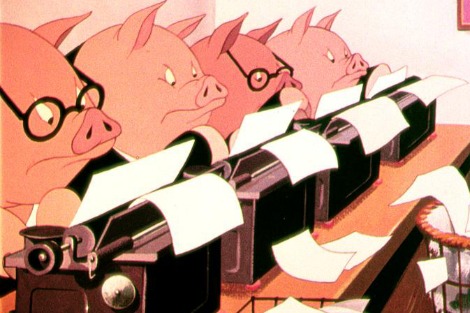
ECONOMICS
- David James
- 07 February 2014
15 Comments
'All animals are equal, but some animals are more equal than others'. This was George Orwell's parody in Animal Farm of the vicious use of language in communist states. It was one of his memorable depictions of how the absurdities of language not only reflect evil, but also predicate it. Language was a tool of oppression in communist states. In capitalism it is no less vicious.
READ MORE 
-
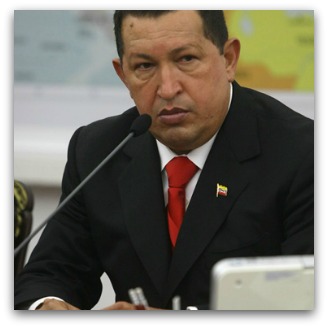
AUSTRALIA
- Antonio Castillo
- 08 January 2014
2 Comments
With Hugo Chavez's death Latin America has arguably lost the most influential political leader of the last two decades. Chavez was one of those men that Bertolt Brecht called the 'indispensible ones'. He has been the champion of the socially and economically marginalised since he came to power in 1999.
READ MORE 
-
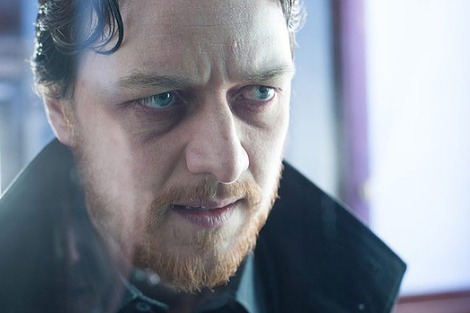
ARTS AND CULTURE
- Tim Kroenert
- 28 November 2013
Police detective Bruce Robertson is corrupt, violent, misogynistic, and a depraved drug addict. But he is not entirely inhuman, and Filth spends much frenetic energy trying to map the ghastly inner wounds that bleed greenly into his outer corruption. But just how do you build sympathy for a character whose near-to-first on-screen act is to sexually assault the underaged girlfriend of a murder suspect?
READ MORE 
-
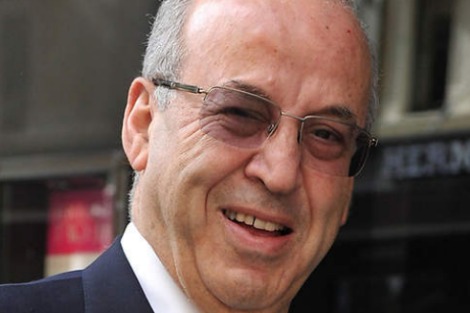
AUSTRALIA
- Michael Mullins
- 11 November 2013
4 Comments
Corrupt former NSW Labor minister Eddie Obeid has sought public funds to cover his legal fees. It is true that the system provides assistance to a wide range of claimants, and he is entitled to make his case. But many of those who are genuinely disadvantaged really do need legal assistance but they fail to seek it because — unlike Obeid — they are not skilled and practised at helping themselves.
READ MORE 
-

RELIGION
- Andrew Hamilton
- 24 October 2013
33 Comments
Suppose the media, shocked by the cavalier approach to politicians who claim allowances for travel and other perks, unanimously decided henceforth always to refer to our parliamentary representatives not as Members and Ministers, but as Rorters and Archrorters. The stigma that such branding would attach to political life would be reflected in a diminishment of the high level of trust in which they are currently held by the Australian public.
READ MORE 
-

ARTS AND CULTURE
- Tim Kroenert
- 17 October 2013
20 Comments
Father Bob is cast in a similar mould to Peter Kennedy and Bill Morris, those other earthy Australian clerics who according to the popular narrative were suppressed by the hierarchy for flouting outdated practices. This is an appealing narrative for a secular public that has become disillusioned with institutional religion, especially due to the sexual abuse crisis and inequitable practices regarding marriage and the role of women within the hierarchy.
READ MORE 
-

AUSTRALIA
- Brian Toohey
- 14 October 2013
9 Comments
Amid all the post-election talk about Labor values, no one within the party has explained how the appalling behaviour exposed by the NSW Independent Commission Against Corruption could have occurred if senior figures took any notice of these supposedly cherished values. It is not credible that most NSW state and federal Labor MPs, and key officials, had no inkling of Obeid's behaviour while a backbencher or minister.
READ MORE 
-
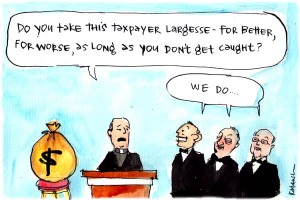
CARTOON
- Fiona Katauskas
- 09 October 2013
4 Comments
View this week's offering from Eureka Street's award winning political cartoonist.
READ MORE 
-

AUSTRALIA
- Michael Mullins
- 07 October 2013
6 Comments
Australia tied with Denmark, Finland and Japan for the title of the world's least bribe-ridden country in 2013. Our cultural resistance to corruption has long been a major contributor to Australia's reputation as a good global citizen, not to mention economic prosperity. Pope Francis said last week that we all have our own idea of good and evil, and each of us fighting against evil as we conceive it makes the world a better place.
READ MORE 
-

EDUCATION
- Frank Brennan
- 30 September 2013
Full text from Frank Brennan's lecture 'Law teachers as gatekeepers of law, public morality and human rights: Equipping our students for moral argument in a pluralistic legal environment' at the Australian Law Teachers Association Annual Conference 2013.
READ MORE
-

AUSTRALIA
- Tony Kevin
- 20 September 2013
6 Comments
Under the US revolving door model, top public service jobs are held by staff who are openly politically affiliated. When government changes, they go back to their jobs as special interest Washington lobbyists. Australians have made clear we don't like that system. It is open to corruption, and when our governments flirt with it, they usually come to regret it.
READ MORE 
-

RELIGION
- Clare Boyd-Macrae
- 20 September 2013
2 Comments
Times are no more stormy now than they have ever been. And yet there is a different quality to our storms than there has been in the past. Two things contribute to this. First: it is now a reality, even a likelihood, that we will destroy our planet. Second: we no longer have an assumed, central narrative that informs and inspires us.
READ MORE